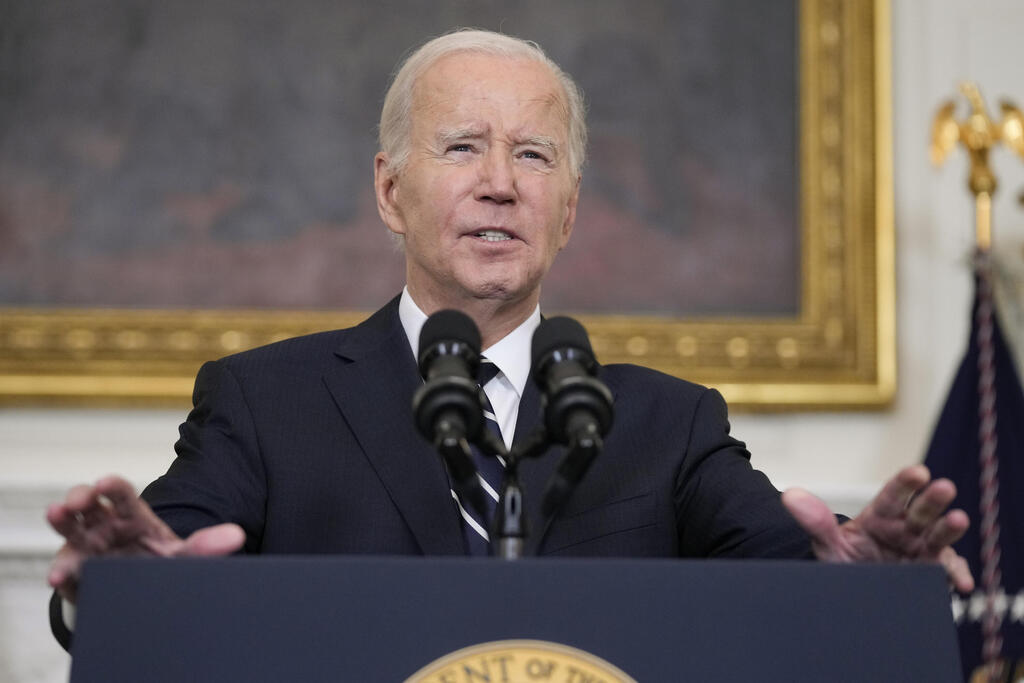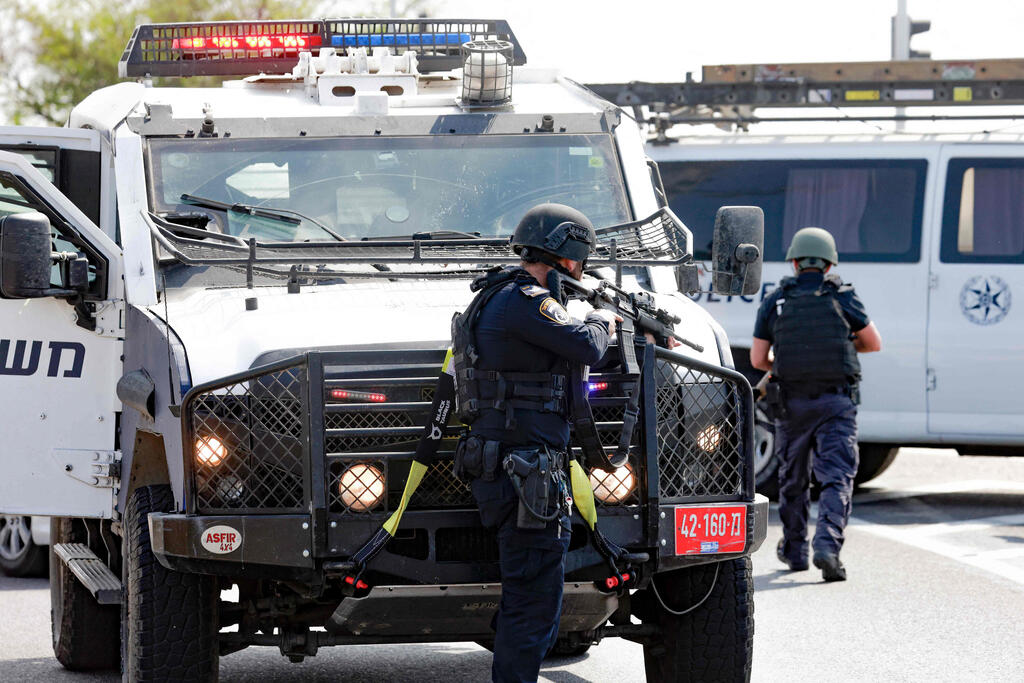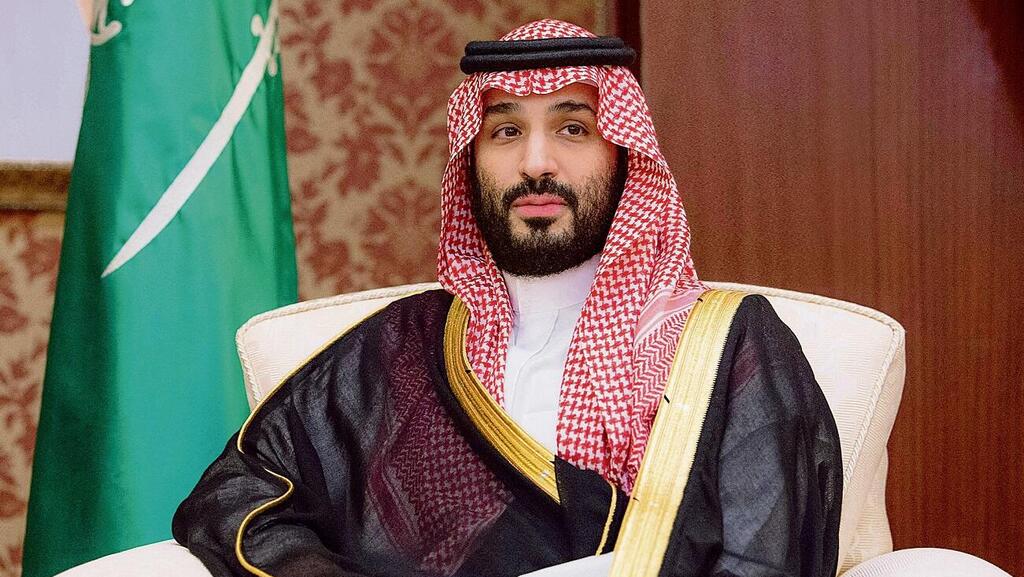American security officials are still trying to figure out what in Israel’s miscalculations allowed for the horrendous offensive against the country by Hamas, as well as its tragic outcome. Officials in Washington and New York are wondering whether Iran was aware of the offensive in advance and whether the desire to sabotage the Israel-Saudi normalization deal was one of the motivations behind it.
More stories:
Yedioth Ahronoth journalist Ronen Bergman wrote in an article in The New York Times on Sunday that American sources said that while Israel and the U.S. knew that a Hamas attack was possible, and perhaps even likely, there was no specific tactical warning against such a move on Saturday, and no signs were given that would have allowed Israel to take specific actions.
According to Mick Mulroy, a former CIA officer and senior Pentagon official cited in Bergman's article, Hamas’ incursion into Israel likely required extensive preparations. "There were likely indications of the buildup of munitions and the preparation of the assault force, and there was cyber activity in Israel prior to the assault,” he said.
In an article titled "Israel's Worst Day at War," senior commentator Thomas Friedman wrote that when he wants the most accurate reporting on Israel he calls his friend, Israeli journalist Nahum Barnea, who told him on Saturday that: " This is the worst day that I can remember in military terms in the history of Israel, including the blunder of the Yom Kippur war, which was terrible.”
Friedman, who’s considered close to U.S. President Joe Biden, wrote that the shock waves caused by the current conflict won’t only shake Israel and the Palestinians in Gaza but will also reach Ukraine, Saudi Arabia and Iran as well.
This is because any prolonged war between Israel and Hamas is likely to divert American military equipment not only from Kyiv to Tel Aviv, but also because it will make the normalization agreement between Saudi Arabia and Israel impossible at the current time.
Friedman, known as one of Prime Minister Benjamin Netanyahu’s harshest critics, emphasized in his column that Netanyahu's insistence on promoting the judicial overhaul in recent months caused "terrible damage to Israel."
"Bibi [Netanyahu] prioritized a judicial putsch to strip the Israeli Supreme Court of its power to oversee his government — over all other priorities. In the process, he fractured Israeli society and its military. And people have been warning for months how dangerous this could be,” he wrote.
Iran trying to save itself
Friedman had strong words for Hamas as well. "As bad as Netanyahu has been for Israel, Hamas has been a deadly curse for the Palestinian people since it took over Gaza in 2007. The billion-plus dollars in aid that it received from Qatar alone over the years could have gone into building Gaza into a productive society (...) Instead, Hamas has devoted most of its energies and resources to digging tunnels into Israel and building rockets to try to destroy a vastly more powerful enemy – thus depriving Gazans of any chance to realize their full potential.”
He emphasized his belief that Hamas can never be a partner for a peace agreement with Israel and described it as a "Palestinian Islamic mafia," adding that the Palestinian Authority could potentially be a fitting partner.
Peter Baker, another New York Times commentator, also wrote about how Hamas’ attack occurred at a time when the Biden administration was leading an ambitious diplomatic project for the Middle East, with the goal of reaching a peace agreement between Israel and Saudi Arabia.
“But the old Middle East, it turns out, still has something to say about it. The stunning Hamas assault on Israel on Saturday served as a gut-wrenching reminder that the decades-old conflict with Palestinians remains a cancer that has not gone away even as leaders in Washington, Jerusalem, Riyadh and other Arab capitals would prefer to focus on building a revamped region,” Baker wrote.
Baker wrote that while American officials have been cautious in speculating too early about the explicit motive behind the offensive, whether it was Hamas' interests or those of Iran to disrupt the negotiation process between Israel and Saudi Arabia, "they acknowledged that it could complicate the already delicate negotiations and make it that much harder to reach an agreement.”
He emphasized that in recent weeks, with progress in the normalization process between Israel and the Saudis, Iranian rhetoric has become more blunt, and it’s not beyond the realm of possibility that Iran at least knew in advance about Hamas's intentions.
Mara Rudman, who served as former U.S. president Barack Obama’s advisor to the Middle East, told Baker, “This will slow considerably if not kill the Saudi Abraham Accords deal. The attack strikes at the heart of key elements for Saudi entry, a pathway forward for Palestinians in West Bank and Gaza, and on the Israeli side, there will be zero appetite across a wide political spectrum for helping Palestinians.”
John Hannah, the former national security advisor to U.S. Vice President Dick Cheney, told The New York Times that it’s reasonable to assume the attack aimed to disrupt the peace process between Israel and Saudi Arabia, which would’ve brought widespread changes to the Middle East.
“Israel-Saudi normalization poses a mortal threat to the genocidal project that lies at the core of the Iranian revolution: wiping Israel off the map,” he said. Hannah also said that Saudi Crown Prince Mohammed bin Salman despises Hamas and told his confidants that he was aware violence may occur in an attempt to stop the deal’s progress.
Biden versus Trump
Baker wrote that, until now, the Palestinian issue has been considered a secondary concern in talks that Biden's envoys have been conducting with Saudi Arabia. “Crown Prince Mohammed bin Salman cares little about the Palestinian cause but his father, King Salman, does and so the prince has made clear that Israel must make some concessions as part of any agreement,” according to Baker.
Now, however, Baker says things are changing. “For years, the Palestinian issue had largely receded from the global agenda. But it never receded for the millions living in Gaza and the West Bank, where anger and resentment at Israeli controls and settlements remain combustible.”
Some Republicans criticized Biden following Hamas’ incursion. Among other things, they argued that the U.S. agreement to exchange prisoners with Iran last month made Hamas' actions possible. “Sadly, American taxpayer dollars helped fund these attacks, which many reports are saying came from the Biden administration,” former U.S. president Donald Trump said in a statement.
The New York Times emphasized that tax dollars weren’t spent in the deal, and the money that was released to Iran was $6 billion that initially belonged to Iran and had been frozen in South Korea due to sanctions on Tehran.





